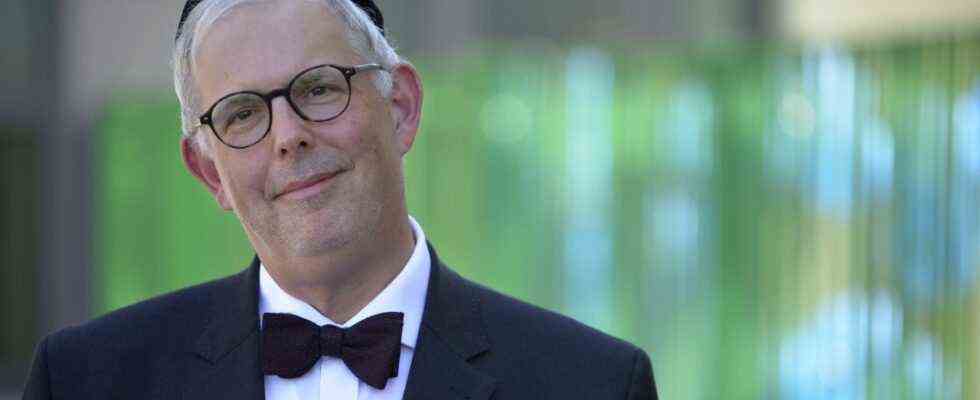The time of repentance is coming to an end. It lasted ten days, since the beginning of the two-day New Year festival Rosh Hashanah, the believers have had time to rethink their lives, reflect on good and bad and make resolutions for the coming year. Now the days of reflection come to an end, and at the end of this period there is another public holiday, which, along with Rosh Hashanah, is the most important in the Jewish calendar and is so important that it is also celebrated by many Jews who otherwise rarely or have nothing to do with the Jewish religion: Yom Kippur.
On this day, Jews all over the world celebrate the Feast of Atonement. In the Jewish calendar it falls on the tenth day of the month Tishri – this year it is Thursday. “On this day we have a special connection to God,” explains Rabbi Steven Langnas from the Israelite Community in Munich. One last time on Yom Kippur the people should deal with themselves and their relationship with God and with their fellow human beings. And so that one can concentrate fully on the spiritual level on this occasion, there are special regulations.
The believers are not allowed to eat or drink from sundown the previous day until sundown on Yom Kippur. “You shouldn’t take a sip of water either,” Langnas affirmed. In addition, Jews are not allowed to wash, anoint or wear leather shoes on this special day. The latter is done out of respect for the animals, explains Langnas, the other two regulations are there so that the believers can concentrate solely on their thoughts. “Physical needs should take a back seat on this day.”
In order to be able to come into contact with God on Yom Kippur, many Jews spend most of the day in the synagogue. While the services on Rosh Hashanah can last up to six hours, those on Yom Kippur are even longer. Sometimes, according to Langnas, they can last from eight in the morning to eight in the evening – and of course the participants are not allowed to eat or drink. Isn’t that exhausting? No, says Langnas – and quotes one of his colleagues: A rabbi once said that you were so preoccupied with yourself and God that day that you didn’t even think about it. “And that’s exactly how it is,” confirms Langnas.
Some take their beliefs very seriously, while others focus on the festivals
After the service and the sunset there is then – as on many other Jewish holidays – a meal together with the family. Unlike on other occasions, however, there are no special dishes on Yom Kippur. “Every family has their own dishes,” says Langnas. Rather, dinner is thought of as breaking the fast together after the previous day without food.
With its regulations, Yom Kippur is very similar to the weekly Shabbat, on which Jews are not allowed to vacuum or clean the apartment – at least theoretically, this is mandatory, explains Langnas. However, many people would not obey these weekly commandments so strictly. At Yom Kippur, however, those who would otherwise live out their faith more loosely or not at all would also take into account the religious rules.
This is particularly evident in Israel, where public life largely comes to a standstill on Yom Kippur. In the Munich community, on the other hand, it is similar to the other communities outside Israel, says Langnas: While some would take their faith very seriously, others would rather concentrate on the festivals. But at Yom Kippur and perhaps also at Rosh Hashanah, almost everyone would remember their religious roots – like many people in Christian countries at Christmas or Easter.

